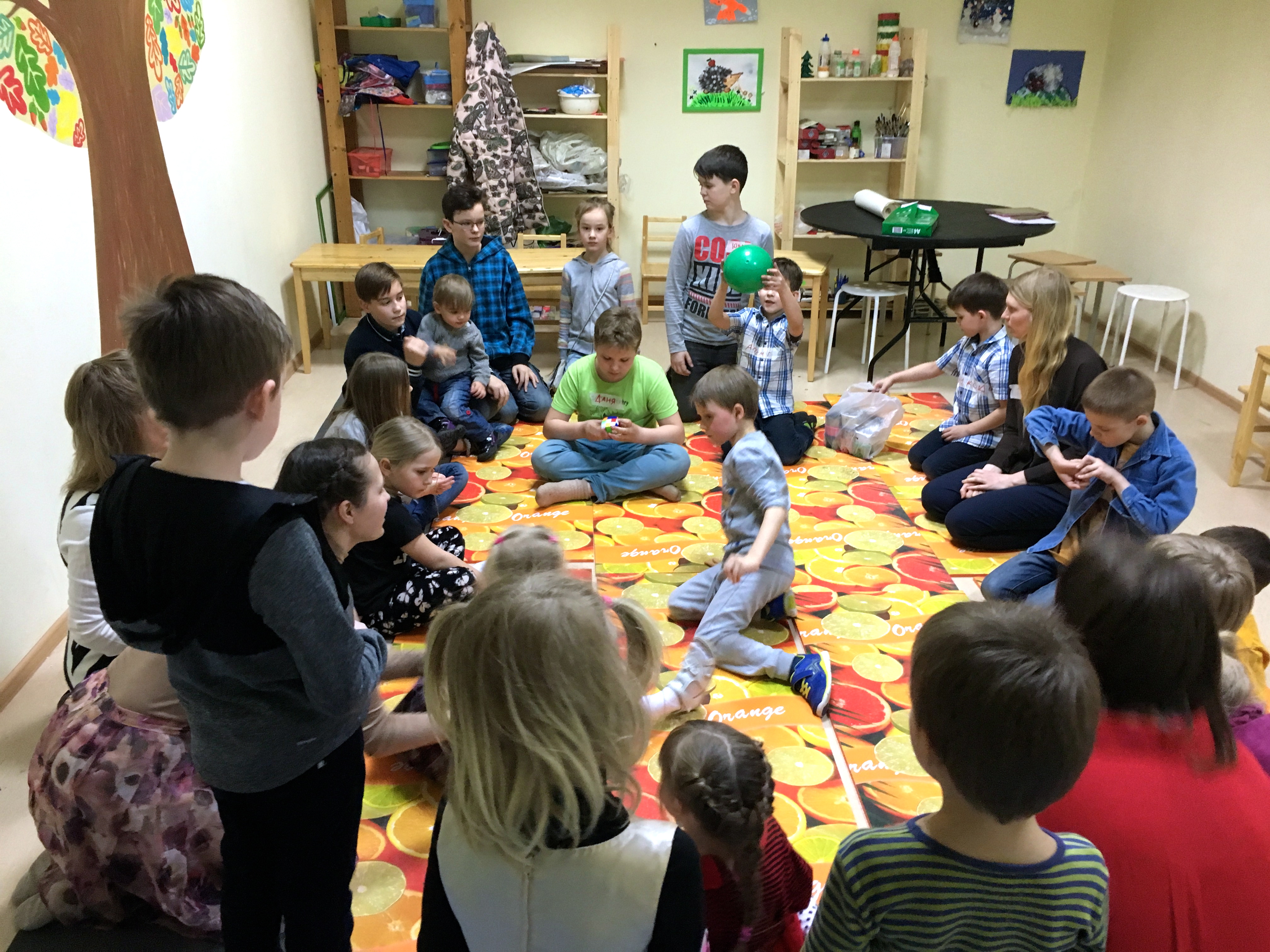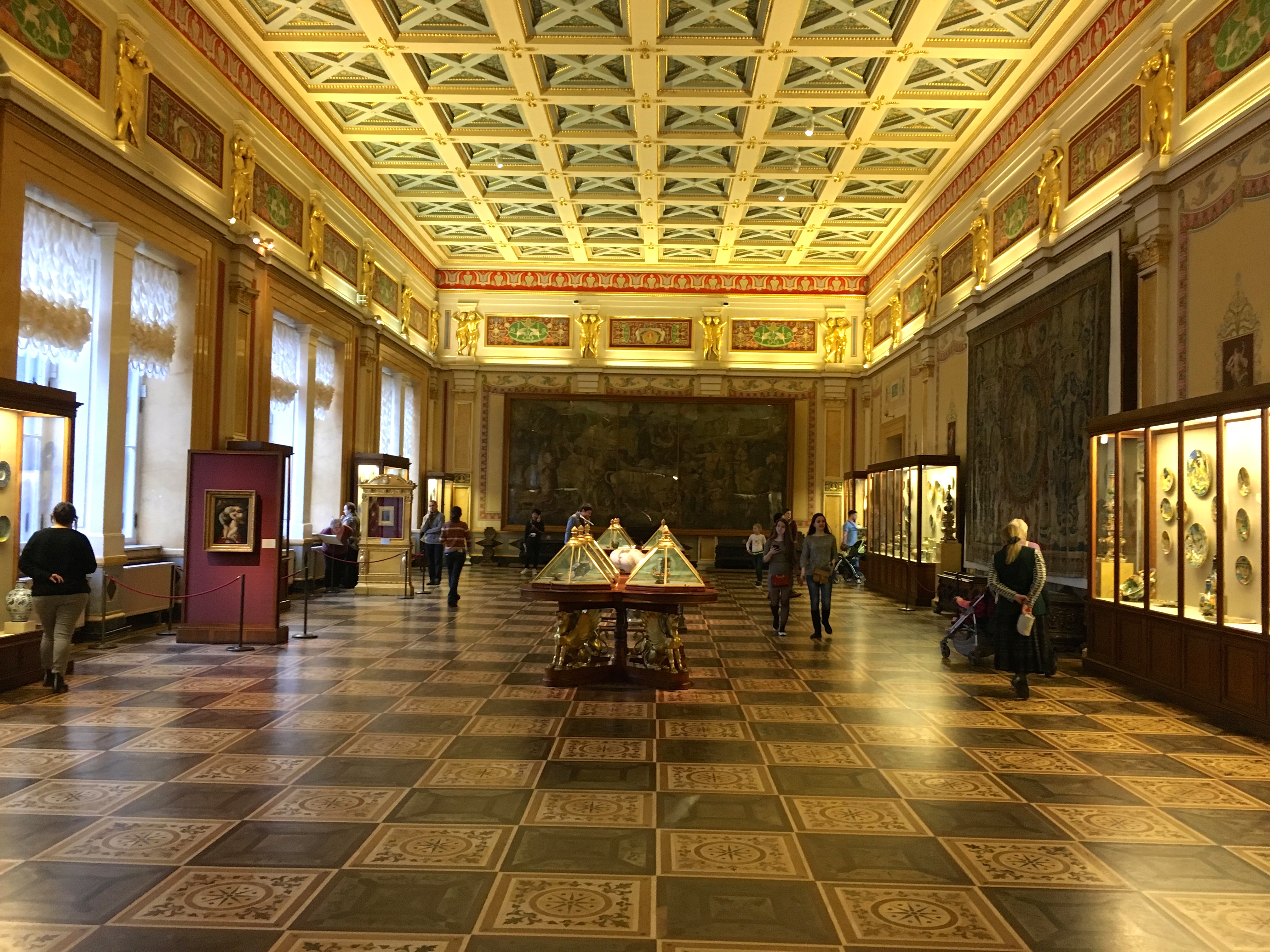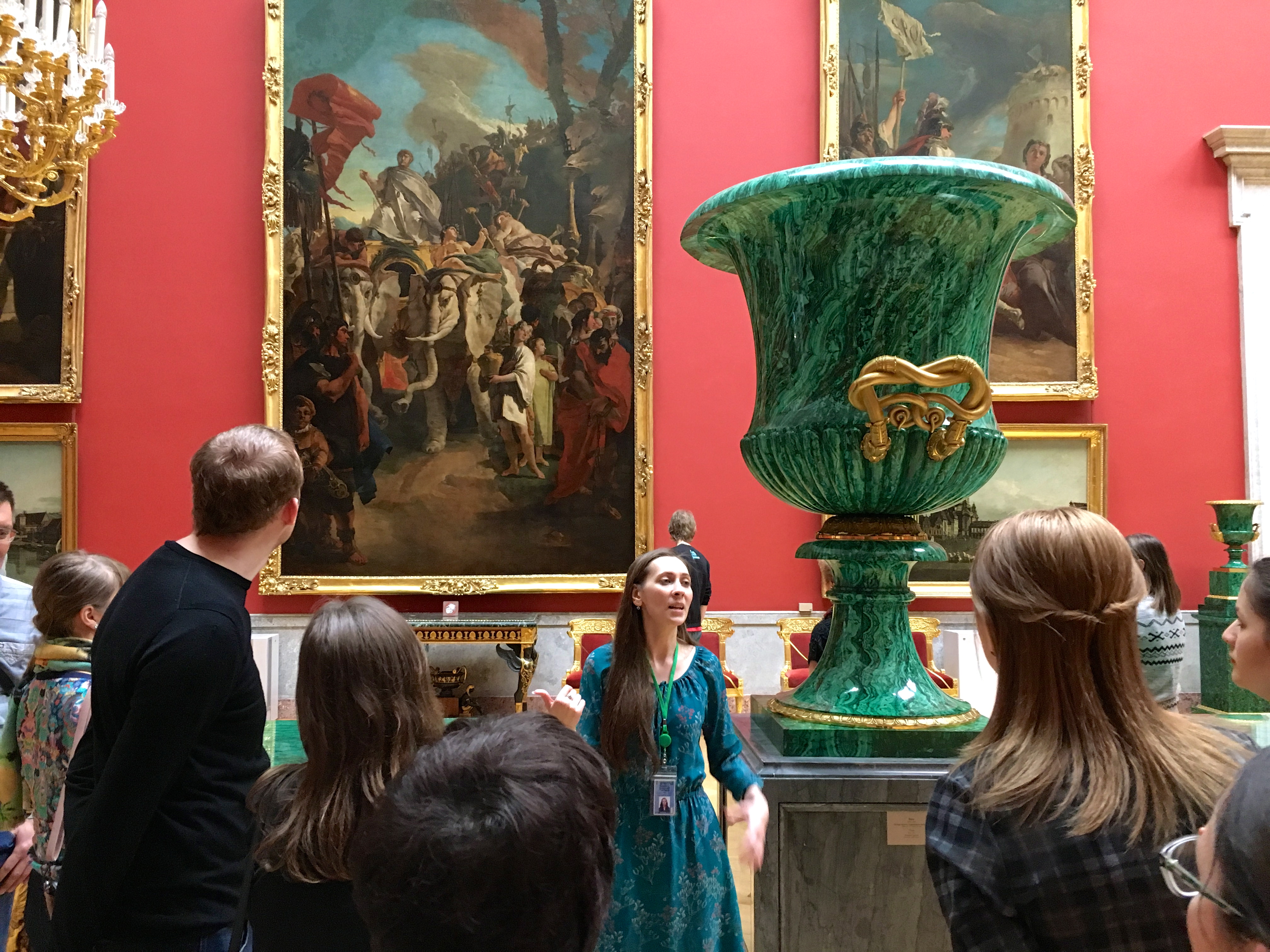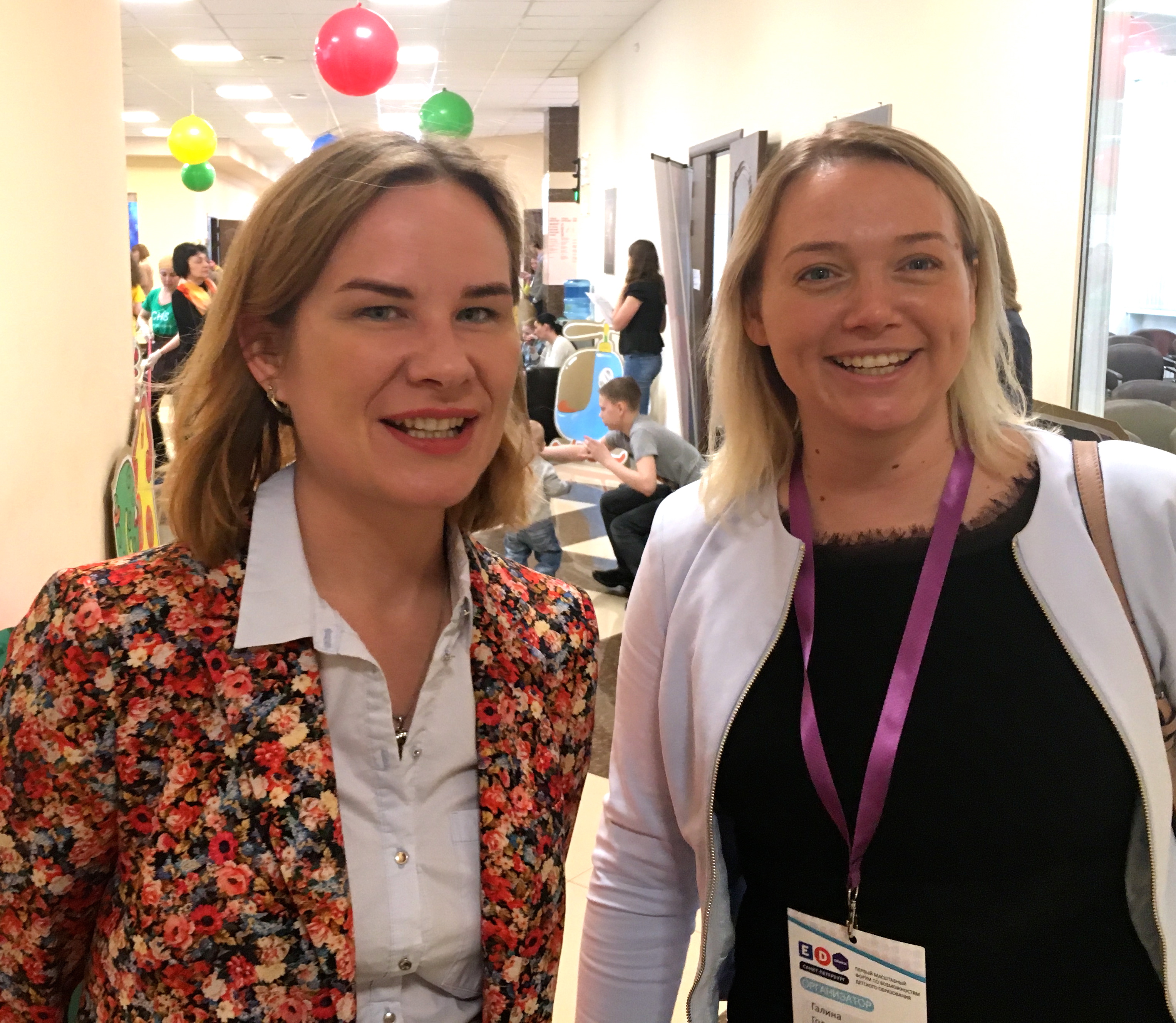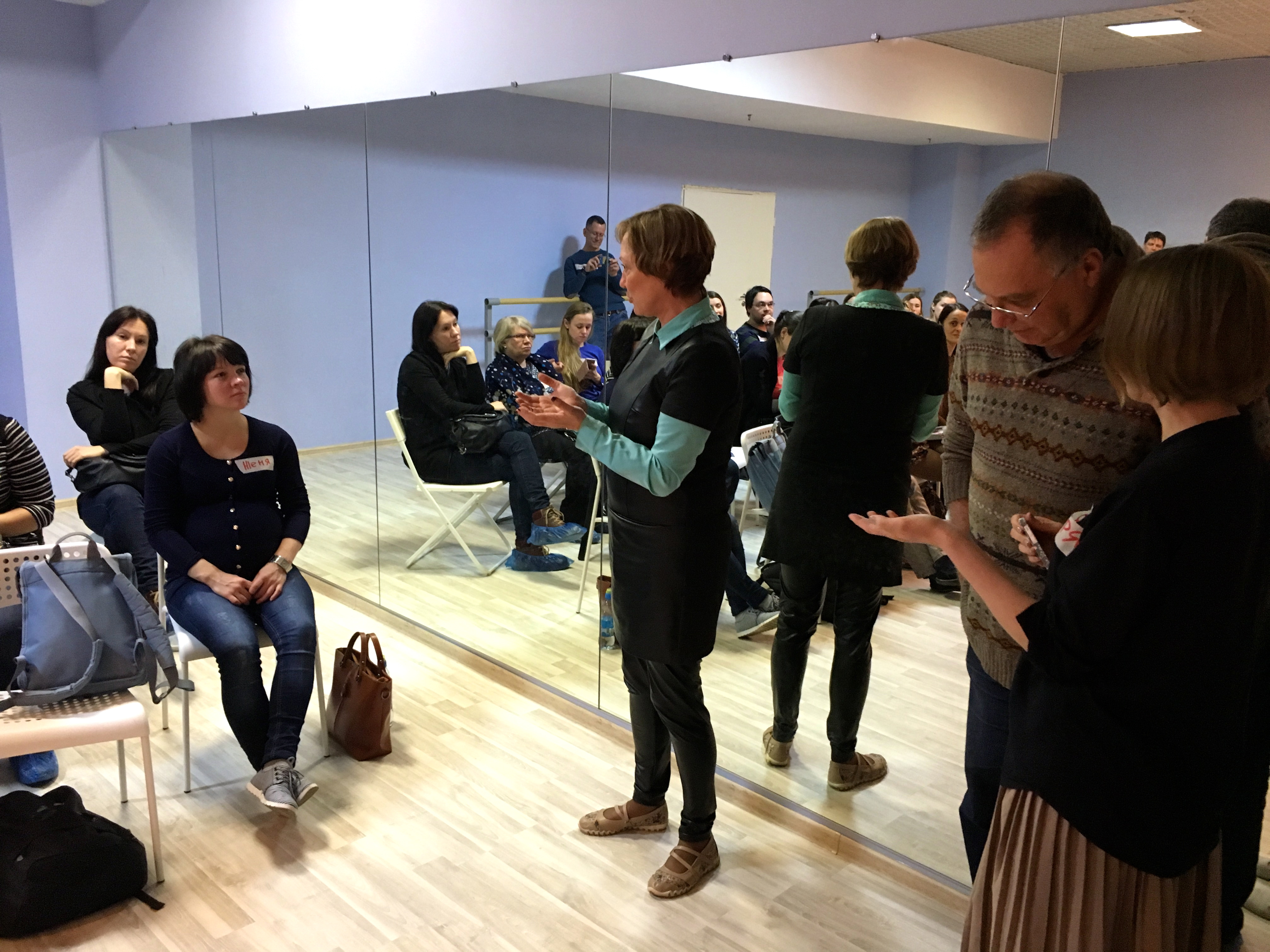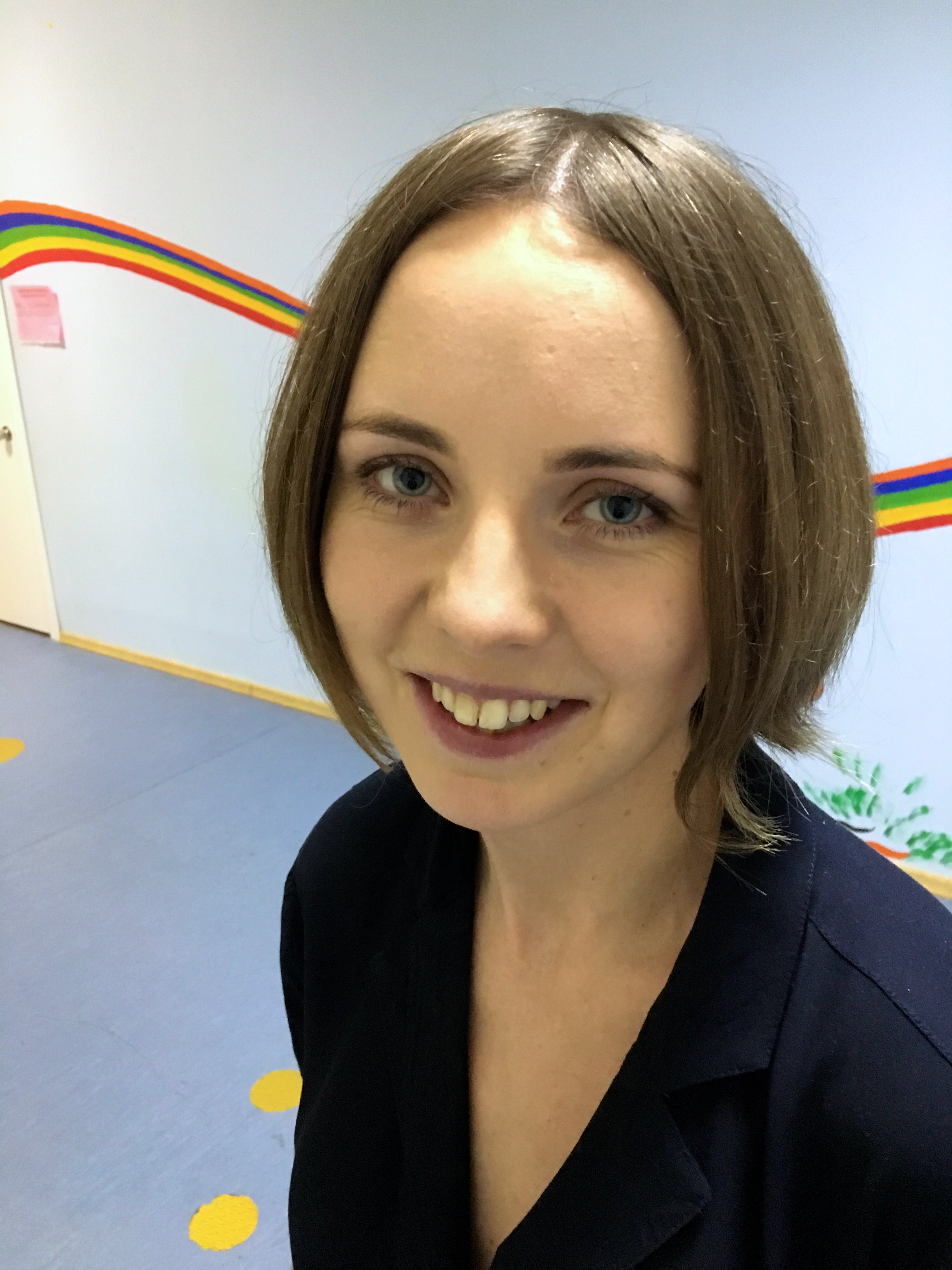I didn't fly for a long time after that, maybe 10 years. But these day I somehow wind up flying huge distances. Less than two weeks afrer we came back from a great International Democratic Education Conference in Israel I had to immediately submit a visa request to speak at a conference in St. Petersburg, Russia. I would never in the world have accepted this invitation, except that it was for my friend Olga Leontyeva. Despite all odds she continues to pursue her father's concept of Park Schooling in Russia and elsewhere. I met her father, Russian theoretical scientist Miroslav Balaban. His concept was that going to school should be like going to a park. You go there when you want, for whatever are your personal reasons. And you leave when you want. Nobody has the right to know why you went or to test you on the way out.
Olga has applied these concepts in Russia and continues to do so. She has a Park School project organizing in St. Petersburg, which I visited on my second day. And the major education conference that I attended was built partly around the support of this project. They expected 1000 attendees. So I came in support of this courageous work.
Try as I might, I couldn't sleep on the plane to Helsinki. We left at 5:30 from New York and arrived at 8;30 AM in Helsinki, which was 1:30 New York time. The weather was cold, wet and foggy. Any foggier and they might not have been able to land. Then we transferred to a small propeller-driven plane. A bus brought us there from the terminal. As we walked up the stairs from the tarmac it suddenly began to hail! I didn't sleep on that leg either, and we landed in snowy St. Petersburg with a big bump!
They were very slow in customs as usual but apparently OK with my visa. I had to get a work visa rather than a tourist visa. They greeted me with a sign with my name on it in the terminal. We then waited for Olga's plane which was late from Moscow. Apparently it was late because of a security stoppage because of the terrorist attack in Paris. Actually just last week a terrorist blew up a subway in St. Petersburg, killing 10.
Olga arrived from Moscow and they brought us to the hotel where the conference guests were staying. I was completely wiped out, having not slept for more than 24 hours. But Olga felt strongly that we should see the Hermitage right away as there might not be any time. It turned out she was right and I would not have missed it for anything. She was even able to get a friend who was a researcher there to get us in. The museum is the most spectacular one I have ever seen. Other museums have great things in them. But in addition to having incredible collections of every artist you have ever heard of going back millennia, the museum itself is a masterpiece. Everywhere you look is a masterpiece-the floor, the ceiling, the hallways, everything!
Yaacov Hecht arrived from Israel that evening. Gala, one of the conference organizers, has a small preschool in St. Petersburg. I met her last year at the IDEC in Finland. She wanted me to go with her to a location where they were having a pre-conference day with parents and children, with many activities and discussion topics. Since it was snowing, Yaacov wanted to just walk in the snow with Olga, since it almost never snows in Israel.
Gala and I went to the pre-conference events. Many people were there. I wound up doing several spontaneous workshops and having many discussions. After one of the presentations a woman came up to me to discuss the school she was organizing near Moscow. She even had a site and had started construction. She was interested in joining our school starters course in September.
What impressed me overall by the people I met was their sheer determination and courage to create good environments for their children despite the current political climate.
From the pre-conference I was sent by taxi to another site where Park Schooling was being demonstrated. It was on the third floor of a mall where they rent space on the weekends. This is in anticipation of starting a full school in September. The parents who send their children to this program are committed to the idea.
As I arrived I went into a room full of parents who were waiting for Olga and Yaacov for a presentation on democratic education. But they were late. So, on no notice, I started a warm up presentation about democratic education and then fielded some questions from parents. After about a half hour Olga and Yaacov arrived.
I left it to them and went to a supermarket in the mall, looking for something to eat. A young man who worked there came over and started talking to me in English. He explained that he knew I wasn't a Russian grandfather. He said, "He wouldn't be wearing a baseball hat. He wouldn't be wearing a cartoon shirt. He wouldn't be wearing jeans. AND he wouldn't be smiling! " He helped me shop for a healthy salad.
I went back to the Park Schooling demonstration. On the way, I realized that the entire third floor of the mall was dedicated to children's stores and activities. I watched various groups meet in the demo, largely self organized, around particular topics of interest such as biology and acting. Other children were just playing with various toys or games.
Another taxi took me and Yaacov to a special dinner for foreign guests at a nice restaurant. There I met various important players such as people from the Ribikov Foundation who were a key conference sponsor. This was their first conference geared primarily for parents rather than professionals.
The next day was the conference day. The weather was still gloomy, and we walked in the rain over to the IT University that was hosting the event. Nevertheless, more than 1000 people arrived to participate, mostly parents and their children!
First, there was a dance on stage featuring children with adults dragging them and pulling them, representing the feeling that most children have in today's society.
After introductions and greetings, the first keynotes and workshops started. They were in several large venues. Marko, who hosted last year's IDEC in Finland, was one presenter. His interpreter showed up late so they were ten minutes behind schedule. Olga was next and therefore had to start late, doing a presentation on Park Schooling. When a conference official came in to cut her short she barked back, "I not finished! I have 5 minutes more!" My interpreter was shocked. I was not! Olga has had to fight for every inch of progress. I once asked her if she was afraid someone would stop her from promoting her ideas. She told me that she stopped having fear and just does what she believes in. She finished her presentation.
My keynote was in the main auditorium. They were in a TED-like format with only 25 minutes for each presentation. In the instruction sheet I was sent they said, "We are open to all new formats and are interested in an interactive dialogue with the audience" and suggested that we use an innovative approach. I decided to take them up on this with a demonstration of "organic curriculum" with student volunteers on stage. Of course, this was a tremendous leap of faith: I've gone to Russia, asked for student volunteers I've never met, hoping they can come up with questions they would like answered, all in a different language, and all in 25 minutes!
In the late morning my interpreter, Victoria, a 33-year-old mother, teacher and chemistry student and I went around and asked for volunteers. She had to explain to them what we wanted and ask them to come to the auditorium later that day and go on stage. We found 12 who agreed, age 6-13. We had no idea whether they would even show up.
